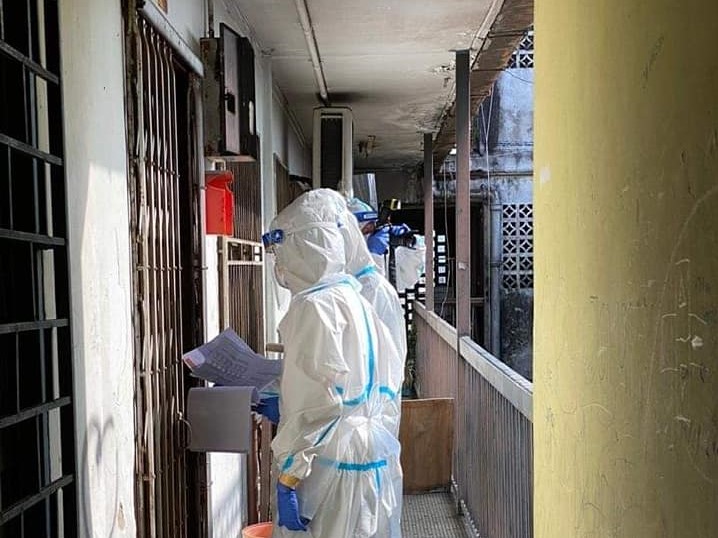It is very sad that a doctor fell to his death about two weeks ago in Penang. Unfortunate indeed that another human life is lost prematurely.
What surprises me is that everyone is assuming that it was work-related. The police have yet to conclude their forensic investigations. We do not really know what happened and we should not speculate and proliferate the Rashomon Effect.
If I remember correctly, a similar incident happened two years ago, and police investigations concluded that the doctor’s death had nothing to do with stress from work as a doctor.
Following the recent incident, there have been many postings in social media that would be very traumatising to the deceased’s family members. We need to respect his family’s feelings.
Let’s get back to basics. What is bullying?
Is it wrong to scold a doctor for repeating the same mistake habitually despite multiple gentle reminders? Is scolding them wrong if they are reprimanded for putting a patient’s life at risk?
Anonymous doctor
Virtually all fingers are pointing at bullying of junior doctors by medical officers and specialists. No one is denying that workplace bullying does exist. It exists in every field, not only in the medical field.
Undoubtedly, there are genuine cases of bullying where one gets physical, reprimands with abusive language, and in front of the patients. These must be dealt with promptly at the department level by the heads and failing so, by the hospital directors.
However, a former Health deputy director-general recently tweeted “…appropriate work culture must be championed by all hospital directors and HODs on the ground. Many tend to remain silent even when it’s occurring blatantly. It often starts from the top; the solution will also come from the top.”
We need to get to the root cause of legitimate bullying cases. It is the direct responsibility of all heads of department to ensure that not one doctor is bullied under his or her watch. The Ministry of Health (MOH) must set forth clear directives to all heads of department and make it is one of their key performance indicators (KPIs), if they are serious about uprooting this grievous offence.
There is, however, a general feeling that many junior doctors have mental health issues, ranging from anxiety, depression, low self-esteem etc. It has been ongoing since their medical school days, which were unfortunately not addressed early and appropriately by their teachers.
The cognitive and psychomotor aspects of learning have dominated the universities’ medical programmes and the affective domain of learning – which involves the emotions, feelings, values, motivations, behaviours, qualities of character and conscience – has been relatively marginalised. Universities need to invest in the mental wellbeing and the affective wellness of their medical students.
It’s about time all medical schools had a brainstorm session on:
- Entry requirement of medical students, which must include proper aptitude assessment and not just based on straight As or 4.0 GPA.
- Periodic mental health screening of medical students by the respective universities.
- Compulsory on-call duties for medical students in their clinical years.
Junior doctors with mental health issues are assisted promptly at the hospital level by counsellors or psychiatrists in MOH hospitals involved. The MOH tries their level best to assist these doctors.
Contrary to what many think, MOH takes prevention of bullying at the workplace very seriously. There are sufficient organisational structures to deal with bullying at the hospital level.
Unfortunately, many junior doctors do not complain during their housemanship. They only do so after completing their housemanship. Some do but fail to provide sufficient evidence.
Anonymous doctor
If there are legitimate cases, they should report them. Of course, we can work on the system to further improve the mechanism of dealing with workplace bullying. There could be some “black sheep” hospitals that failed to deal with complaints seriously. However, the vast majority take this seriously and act on the complaints.
Many allege that junior doctors are overworked. However, the shift system does not allow junior doctors to work long hours. They are expected to do about 65 to 70 hours a week. They get one day night off (going off the next morning after doing night shift) and another one day off a week.
Technically, they get two days off a week. Of course, there are periods due to the shortage of doctors when they are required to work a bit longer. Mind you, many medical doctors are working longer hours a week, including 24 hours on-call duties. We are in the critical services, just like the police force and army. We have to work longer hours if the need arises.
Certainly, during the initial tagging period of two weeks, they work longer hours. Ten years ago, they used to do tagging for a few days when entering a new department. Unfortunately, most junior doctors could not function independently after a few days of tagging.
As such, it was increased to two weeks. During this tagging period, they are paired with another senior doctor i.e. they are not alone. Personally, I feel two weeks of tagging is too long. However, most house officers are not confident themselves with anything less.
Some will say that even though their shift starts at say 7am, they come at 5.30am to do rounds. It is, however, their choice to come early to work, not the department’s orders. Yet, they include those extra hours and conclude they are working long hours.
If they are good and smart at their work, they can always come at 7am and complete their work efficiently. Some go home late as they can’t finish their work on time. This is actually a reflection of their own poor cognitive and psychomotor capabilities or of their alma mater that did not optimally train and nurture them.
It is most unfair and unwarranted for the public to go on bashing most of our medical officers and specialists who are not in the bullying category.
No one seems to apportion blame to the doctor who may have chosen a wrong career path or was forced to choose a medical career by his/ her parents or the universities for failing to address their mental health issues.
Anonymous doctor
All hospitals and most senior doctors are dedicated to train junior doctors professionally to make them safe doctors who would not compromise on best practices for patient care. And we are determined to counsel and support junior doctors’ mental health issues without compromising on the quality of patient care.
The lay public is completely oblivious of the challenges hospitals and clinicians face on a daily basis, with about 20 per cent of junior doctors exhibiting atrocious behaviours and attitudes. These include, among others:
- Not coming to work on time.
- Absconding from work.
- Refusing to comply with patient safety measures as mandated by the MOH.
- Refusing to complete discharge summaries on time.
- Making entries into the patient’s note without even examining the patients.
- Cheating at work.
These are the most common occasions which warrants them to be reprimanded and scolded. Failing to complete their basic duties on time simply reflects their very poor basic knowledge.
Maybe a survey among medical officers and specialists regarding the challenges they face with the house officers will help everyone to better understand both sides of the issue.
Nowadays, even the mildest of scolding is labelled as bullying. How else do we correct recalcitrant junior doctors who do things that compromise patient care?
Anonymous doctor
Work-related bullying must be dealt with promptly, seriously and holistically. In legitimate cases of bullying, the concerns of both the victim and the perpetrator must be addressed.
Every time a houseman feels stressed and complains, all blame is heaped on the medical officers, specialists, or consultants. We need to stop jumping to conclusions and blame the whole system for a few rotten apples who shame senior doctors in the profession.
Maybe in the past, there were cases of bullying which were handled poorly or not addressed at all. The previous health minister, in his early days in office, removed a chronic, connected, big time bully in one of the major hospitals in the Klang Valley, which sent a clear signal to the other rogue seniors to behave professionally towards their junior staff and to top leaders in the MOH to be more sensitive to the grievances of junior staff and to improve the work culture in the MOH.
I hope that the task force mooted by the minister will, apart from investigating the circumstances of the houseman’s death, comprehensively address the inter-connected issues of medical students, medical schools, housemanship training, and work culture, and institute remedial actions urgently to prevent more serious mishaps.
Some of the strategies to prevent workplace bullying may include:
- Prepare house officers adequately on the expectations during housemanship.
- Make known to all fresh house officers the venues available to voice their grievances against their bullying superiors.
- Each department must have written rules and regulations to be given to house officers and senior doctors.
- Heads of department must have regular meetings with their house officers to get feedback from them.
- Strict directive to heads of department on early detection of bullying in the department.
- Legitimate cases of bullying must be handled promptly, and stern action taken. The should not be any cover-up.
The golden rule of law, innocent until proven guilty, must not only be done, but must also be seen to be done.
The health care system must be protected until proven otherwise. Kindly remember that every year, thousands of new house officers enter the system, with many continuing to become great national assets and treasures. Isolated cases must not be immediately attributed to systematic failure.
Let’s move on. Let’s deal with legitimate bullying but stop blemishing the whole MOH medical fraternity.
This letter was written anonymously because the author is still working in the MOH. Civil servants are prohibited from speaking to the press without prior authorisation from their superiors.
- This is the personal opinion of the writer or publication and does not necessarily represent the views of CodeBlue.






